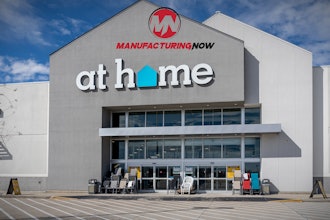An Amazon warehouse collapsed and six workers died after a tornado struck the facility in Edwardsville, Illinois on Dec. 10. The company is still facing repercussions from decisions that were made that day.
In a press statement, attorneys filed two lawsuits on behalf of victims involved in the deadly disaster. Plaintiffs include four Amazon drivers: Jamarco Hickman, Evan Jensen, Jada Williams and Deontae Yancey.
The mother of DeAndre Morrow, a warehouse worker who died in the collapse, is also a plaintiff in the lawsuit.
The other four drivers survived the collapse, but their lawyers say they suffered physical or mental harm.
The statement said the plaintiffs and Morrow delivered packages the day the tornado hit. It also claims the company received warning from the National Weather Service of possible tornadoes in the area as much as 36 hours before the collapse of the warehouse.
Complaints allege Jensen, Williams and Yancey all attempted to leave to seek shelter but management threatened termination.
Hickman noticed the sky becoming increasingly dark and requested to return to the warehouse, turn in his truck, complete his shift and go home but was told to go to the restrooms for shelter.
The lawsuit also goes after the structural integrity of the warehouse. The statement features a comment from the author of a West County EMA & Fire Protection District report that said, “I found what I believed to be one or more significant structural issues with the building that may have contributed to the failure of the structure.”
This is not the first lawsuit to come after the events that night. In January, the family of Austin McKewen, who was killed, filed a wrongful death lawsuit and said Amazon knew severe weather was coming but had no emergency plan and didn’t evacuate employees.
A statement by an Amazon spokesperson in response to the McKewen lawsuit said it “misunderstands key facts,” including the differences among severe weather alerts and the condition and safety of the building.






















